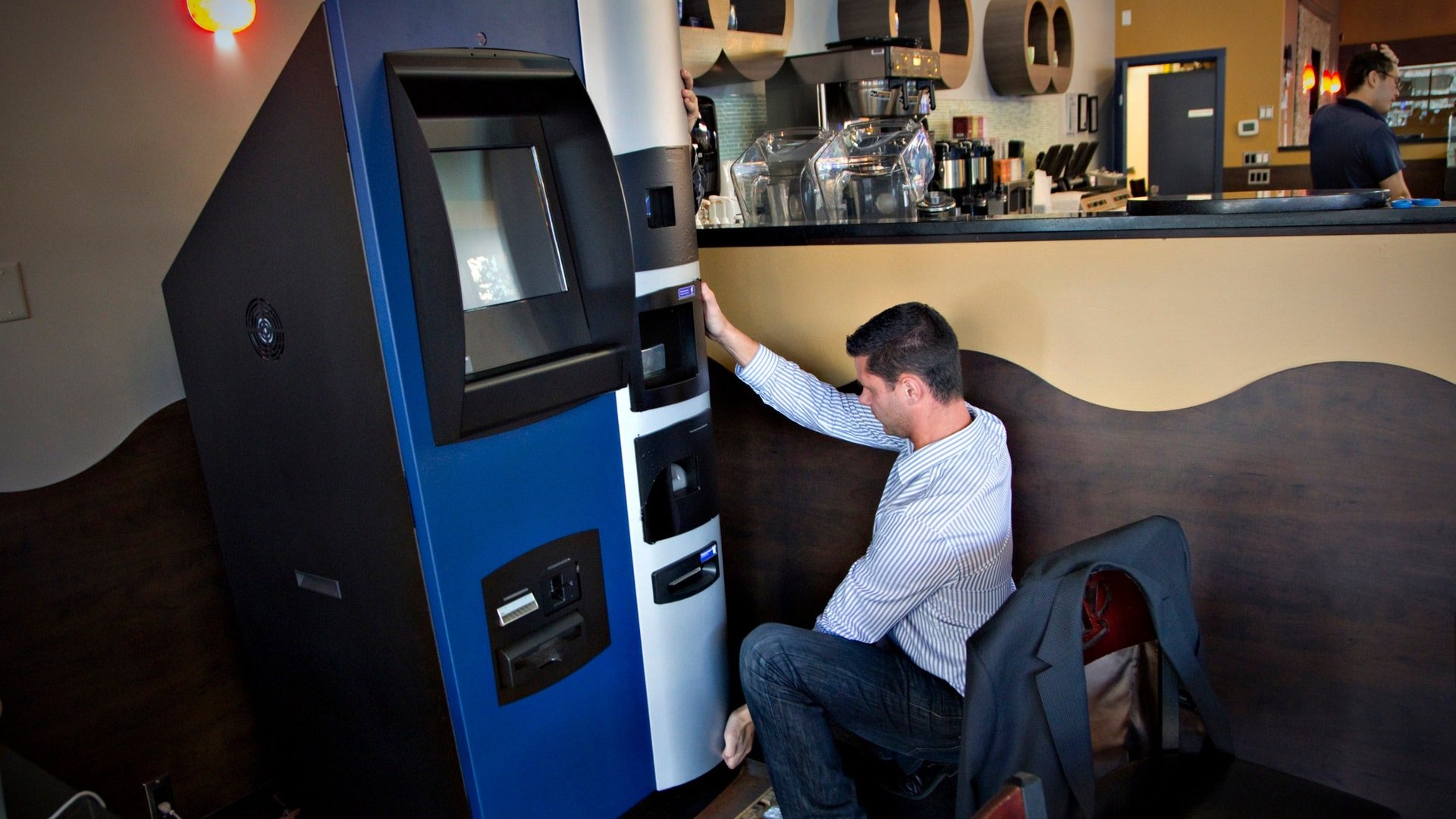Could bitcoin’s new ATM signal its retreat from the US?
Bitcoin, the virtual currency created in 2009, is having a busy day. But not in the US, thanks to the country’s murky and cumbersome regulations.


Bitcoin, the virtual currency created in 2009, is having a busy day. But not in the US, thanks to the country’s murky and cumbersome regulations.
Today (Oct. 29), the first bitcoin ATM opened in Vancouver, Canada, and a new bitcoin exchange for high-frequency trading launched in Europe.
Robocoin, the bitcoin ATM now operating at Waves Coffee, a café in Vancouver, allows the user to buy bitcoins for cash, or vice versa, on the spot. There’s a reason it’s located in Vancouver: Canada’s financial system is a lot less tricky than that of the US. And Coinfloor, the new exchange that opened for registration today and begins trading next week, is headquartered in the UK, where it doesn’t require regulation because the financial authorities don’t classify bitcoin as money. The service will only execute trades from the UK and Europe.
The digital currency has had a tumultuous year. Last fall, roughly $250,000 worth of bitcoin was stolen when Bitfloor, the US’s biggest bitcoin exchange, was hacked. Earlier this year, US bitcoin traders suffered a setback when federal authorities seized the accounts of Dwolla, the company Americans used to trade on Mt. Gox, bitcoin’s main trading platform. In June, Mt. Gox suspended withdrawals in US dollars for two weeks, citing an inability to deal with traffic volumes (which prompted speculation about other possible motivations). And more recently, the FBI’s closure of online black market Silk Street sparked concerns over bitcoin’s viability.
Those signs of retreat from US-based bitcoin infrastructure could set the country back if digital currencies become more mainstream.
“The way the regulatory dance works in the US, I think you will see more innovation elsewhere,” Petter Vessenes, chairman of the Bitcoin Foundation, which is planning to move its headquarters out of the US, told the Financial Times (paywall).